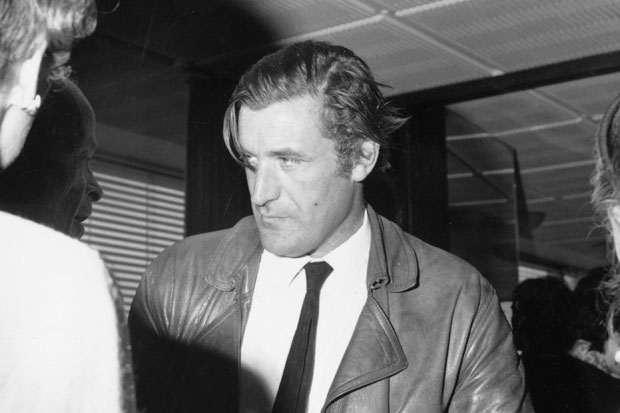A dead parent, the interrogation of a literary inheritance, and over everything, a bird: Max Porter is apparently unafraid to step into massive shoes. Not just the colossal ones belonging to Ted Hughes, whose ‘Crow’ poems are the jumping-off point for this free-verse novella about a bereaved Hughes scholar visited by Hughes’s corvine manifestation, but also those of Helen Macdonald. H is for Hawk, her memoir of loss, writing, recovery and nature, drawing ingeniously on the life and work of T.H. White, covered this territory with ferocious honesty and eloquence. The comparison is impossible to avoid, and not kind to Porter.
That’s somewhat unfair, since Grief is the Thing with Feathers is fiction, and cannot compete with the rawness of real grief written down. But Porter has a good observing eye, and catches much of the strangeness of being at the centre of a personal cataclysm. ‘I braced myself for more kindness,’ says the widower who is the focus of the book, describing nicely the demands that subsidiary mourners inadvertently make of the devastated. There are also passages in the joint voice of his sons, which are less successful, achieving neither a specific childishness nor a generalising insight. Lines such as ‘there was no new language of crisis. We stayed in our PJs and people visited and gave us stuff’, incongruously put an adult vocabulary into the flat tones of juvenile shock, to no great gain.
There is also the voice of Crow, and this is where Porter’s project becomes unfortunately muddied. The conceit is that Crow was always real, a black and benevolent spirit drawn to grieving widowers, dispensing both mischief and care. Crow carps endearingly about the reputation Hughes has left him: ‘I do this, perform some unbound crow stuff, for him [the widower]… Fine by me, whatever gets him through.’ But there is hypocrisy here: Porter draws power from Hughes’s work, while at the same time bowdlerising the source. There are images of violence in Porter’s work, but they are always rehabilitated into metaphor, and nothing to the bloody shock of, say, ‘Crow’s Account of Saint George’.
For Hughes, Crow was not a response to grief, but its harbinger. ‘I hope you haven’t had a year of such poor luck as I’ve had,’ he wrote to Leonard Baskin in 1969. ‘I’m half-inclined to suspect CROW.’ That ‘poor luck’ included the murder-suicide of his mistress Assia Wevill and their four-year-old daughter Shura, and this violence forced a hiatus in the Crow poems rather than initiating them. The kind of masculinity in Porter’s father-son relationships is sweeter than the femicidal one of Hughes’s Crow, where Mammy must be ‘split… like melon’; but it is a sweetness dishonestly bought, by refusing to confront the splendour and viciousness of the source text. The pity is that, when not under Hughes’s wing, Porter writes acutely on the labours of loss: ‘Moving on, as a concept, is for stupid people,’ says the widower. If only this Crow had been less eager to travel so light.






Comments